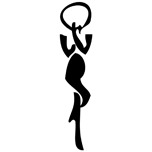Will is the internal capacity of a person to take action, or to resist action. Will can also be considered as the “force of will” whereby the shear strength of one’s belief combined with their desire and action creates a particular outcome that would not or could not have occurred without the force of their will.
- Will power is a concept that is often misunderstood. We think of will power as the power to resist urges, like having a cigarette, or drinking that second cup of coffee.
- When we start to think more deeply about who we are and who we choose to be, we realize that our will is our greatest power.
Fear is the enemy of will. Our will may be pushing us to do something that some (usually psychological) fear prevents us from doing.
- When we feel fear, it is usually because we are being faced with something that our higher self prefers, but our sub conscious or unconscious ego does not prefer and so therefore erects false walls to prevent us from using our will to overcome them.
- This is called a test of our will.
Accessing our will often happens automatically, but the most powerful aspect of our will happens when we consciously embody our will.
- There are several types of exercises that we can use to help develop or “consciously embody” our will.
- Starting the day with a physical exercise of some sort – a walk, a meditation, yoga, or something else we enjoy can work to make us feel more powerful.
- When we feel more powerful, our will starts to awaken and give us more confidence.
Re-source: Recreate
Will can be applied to the concept of prayer. A lot of times, people think a prayer is simply the recitation of certain words. However, a far more powerful form of prayer is one that also incorporates our will.
- When we combine our will with the use of certain words, we are initializing a sort of ecstatic commandment.
- We are putting our “heart and soul” into the (e)motions of prayer
- we are feeling and believing the words that we are saying.
One of the reasons song and dance have been ritually combined with the practice of prayer in various ceremonies and religious orders is because these kinds of activities excite our will
- They help convert our whole body (physical, emotional, mental and spiritual) into a creator of willful intentions.
When we use all of our capacity as an individual – voice, motion, thought, intention, sound, smell – we can stimulate the power of our will to ever greater heights. When we perform these activities as a group, we have an exponentially increasing effect to overwhelm the creative power of the universe to deliver on the intentions being called forth by our will.
craving and resource from “The Greatest Human Power” – (balanceinme.com) – blog by St Jermain

